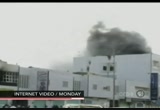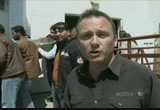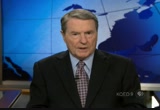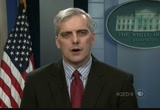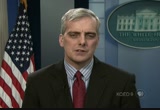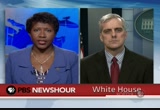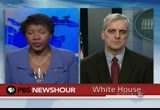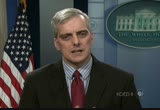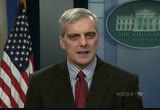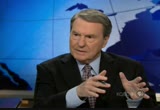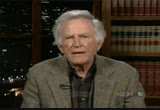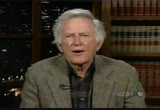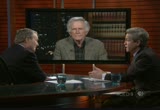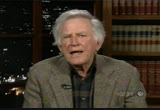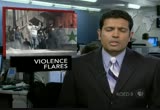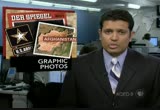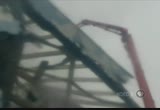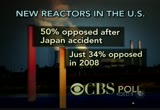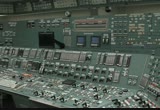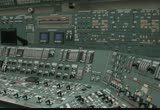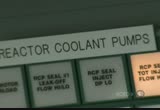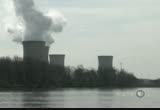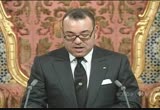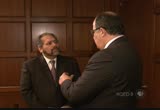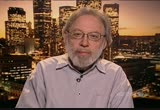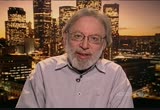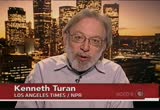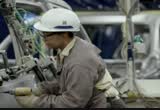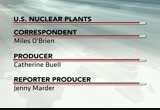tv PBS News Hour PBS March 23, 2011 3:00pm-4:00pm PDT
3:00 pm
captioning sponsored by macneil/lehrer productions >> lehrer: coalition strikes have now grounded moammar qaddafi's air force and pounded targets in libya's capital, tripoli. good evening, i'm jim lehrer. >> ifill: and i'm gwen ifill. on the "newshour" tonight, we get the latest on the air campaign and the fighting on the ground and talk to deputy national security advisor denis mcdonough. >> lehrer: and former senators gary hart and norm coleman assess president obama's decision to use u.s. military power in libya. >> ifill: then, we get a report from a japan battered by nuclear disaster and now facing elevated radiation levels in its tap water. >> lehrer: miles o'brien looks at the future for u.s. nuclear
3:01 pm
power in the wake of the japan crisis. >> ifill: ray suarez reports on how the north african nation of morocco is working to avoid becoming the next target of regional unrest. >> reporter: in washington, morocco's foreign minister gave us an overview of king mohammed's planned reforms for a country facing some of the same discontents as its neighbors. >> you know what i feel like? i feel all the time like a cat on a hot tin roof! >> lehrer: and jeffrey brown remembers legendary film star elizabeth taylor who died today at age 79. that's all ahead on tonight's "newshour." major funding for the pbs newshour has been provided by:
3:02 pm
3:03 pm
and with the ongoing support of these institutions and foundations. and... this program was made possible by the corporation for public broadcasting. and by contributions to your pbs station from viewers like you. thank you. >> lehrer: the air campaign across libya zeroed in today on ground forces, after sweeping the skies of planes. the aerial pounding forced government troops and tanks to pull back from misrata, before reports of new fighting, hours later. and south of tripoli, rebels in zintan said government fighters retreated from all but one side of the city. we get more from martin geissler of "independent television news" beginning with the day's developments in eastern libya.
3:04 pm
there were reports on signs of heavy shelling in the town, some residents did manage to escape from what they say is a living hell. qaddafi! qaddafi's's bomb. >> reporter: he's bombing? >> yes. >> many homes were destroyed. everything's destroyed. >> reporter: in the west, the crisis? rebel-held ms. rat the ta worsened today with the reports of snipers firing in the city center. one doctor told us they attacked his clinic. the allies air strikes continues for a fourth day. that was t scene in a tripoli suburb said to have been targeted by allied planes overnight. there were reports of strikes on misurata, too. the british commander coordinating the operation says the libyan air force is now defeated. >> we are now applying sustained
3:05 pm
and relenting pressure on the libyan armed forces their air force no longer exists as a fighting force. >> reporter: but qaddafi's supporters were buoyed by a stirring speech from their leader tonight. one news reader offered toing ary nice his last breath, last drop of blood and last baby. across libya many have paid that price unwillingly. this started as a peaceful protest, but in the past five weeks it's descended into carnage with an ever-increasing civilian death toll. this is not how libya's revolution was meant to be. the outcome is still far from certain. having come this far, there is no going back. >> ifill: as wednesday night fell in tripoli, explosions echoed across the city again apparently, from new air strikes. in washington, secretary of state hillary clinton said qaddafi could end the fighting by leaving libya. but defense secretary robert gates said there's no telling what the libyan leader's fate will be. he spoke during a visit to egypt.
3:06 pm
>> i think that there are any number of possible outcomes and no ones in a position to predict it. whether it's major defections, whether there are divisions within his family, there are a variety of possibilities it seems to me. >> lehrer: the u.s., european, arab and african nations planned to meet next week on control of the no-fly zone over libya. in the meantime, nato warships began patrolling off the libyan coast, enforcing a u.n. arms embargo. >> ifill: now, joining us from the white house, is deputy national security advisor denis mcdonough. welcome, mr. mcdonough. we just heard secretary gates say there could be any number of possible outcomes. what is the desired outcome that the white house is hoping for. >> gwen, thanks a lot for the opportunity to be with you tonight. i really appreciate it.
3:07 pm
the president explained to the country last friday afternoon that we are setting aside for ourselves a very tightly defined finite establishable mission in the early parts this effort where we're going to shape the environment using our unique assets and then enable our international colleagues, our allies in europe and our partners in the arab world to take over the conduct of the no-fly zone. we're making good strides toward that. he also said out an effort to protect the civilians in benghazi. we have done that thanks to the good work of our marines, our sailors, our airmen and we're making good progress towards both of those goals. what happens after then is we'll watch the u.n. do its work. importantly you'll remember the u.n. appointed the special envoy in the first security council resolution about two weeks ago now so we're going to continue to work with the international community drawing on all the resources, not just our resource which is at the moment are quite
3:08 pm
taxed giving everything that the united states is doing in japan, in afghanistan, in iraq. we think it's an appropriate division of labor here and we're working with our colleagues to set that up. >> ifill: both house speaker john bane they are afternoon and even democrats like senator jim webb have said the u.s. lacked a clear policy and certainly hasn't consulted widely enough with congress. what do you say to them? >> well, we got a let letter from the speaker today. we look forward to continuing the conversation with him. the president had a very good meeting with him on friday. i happened to have a good discussion with him on saturday. we've been talking with congress about this now for a couple weeks but the bottom line is we lad an opportunity to move after we had brought the international community along with us last thursday night in the security council resolution. we had an opportunity to move with alack trity and speed and agility as our armed forces always do and we turned the qaddafi forces around. we feel pretty good about that. but now it's up to working with our international colleagues to establish the kind of command and control that jim referred to
3:09 pm
a minute ago. work with p.m. cameron and his conference next week in london with the international community europeans, arabs, international organizations, put a political plan together to make sure we have the future libyans want. so this is going to be a comprehensive effort. but importantly, gwen, it's not resting solely on our shoulders. it's something we're going to share with the international community. we think we're making good progress on that. >> ifill: the international community had another meeting today in which there was no progress made on this idea of handing this over to nato. secretary clinton talked about handing it over to nato. you talked about having a finite plan. is it going to happen? i believe you... you're back with us. go ahead. >> i don't think that's accurate gwen, to say we haven't made progress. as i think you saw in the newspapers today, starting this morning we were enforcing the arms embargo as a result of nato action. we're finalizing command and control infrastructure for the
3:10 pm
no-fly zone but we know it's important over the last two days, the enforcement of the no-fly zone was done principally if not entirely by non-u.s. airplanes. now the united states still flew important missions as relate too old gathering intelligence, as it relates to fueling those airplanes and as it relates to jamming certain communications. but the bottom line is that this is now the international community that's stepping up. so i just don't agree the premise of the question. >> reporter: secretary clinton said it would be easiest if colonel qaddafi left and we heard admiral mullen, the chairman of the joint chiefs of staff say that this week that he didn't know. they had to envision a possibility that he would still be in office even after this is over. how do you determine success and how do you know if he is still there that the entire cycle doesn't begin again? >> well, you know, we didn't set out to do regime change here. we set out, as i said, to do a very targeted missions which to enable... to shape the
3:11 pm
environment using our unique assets to enable our international partners to take over the no-fly zone. we're on the verge of doing that. we also said as the president outlined to the country on friday afternoon that we were going to make sure that we turned back qaddafi's forces from benghazi. we've done that. i'm very proud of the work of our forces, marines, sailors, airmen, soldiers. they've done that at great sacrifice but with great agility and great alacrity and we've turned back what everybody assumed was going to be a siege of benghazi. so we set out these very concrete efforts. we're going to fulfill those then we're going to bring the rest of the international community along so we can share this burden because, again, we're asking our troops to do an awful lot and, frankly, we're asking the american people to do an awful lot right now and we think that we out to right size this thing so we do it just right. >> ifill: help me get this right. you are defining success as holding qaddafi's forces back from these key cities, benghazi, zawiyah, other cities, misurata,
3:12 pm
then handing this over, at least the lead position over, to international partners. the u.s. would still be involved though. >> oh, in fact, we ensured that the united nations security council resolution that was passed last thursday night had additional tools to allow us to be involved but not solely our military. we're asking our military to do an awful lot right now. so we made sure there's non-military tools. additional sanctions, additional limitations on arms that get to him. additional ability to freeze his assets so we can set aside the money that's not the money for him and his family, gwen, that's the libyan people's money. so that's set aside for them, frozen assets, until there's a change in libya so they can have the kind of future and make the kind of investments that libyans want so we'll be involved. of course we will. >> ifill: the success of this mission, then, is not necessarily whether we leave or stay, it's what? i guess i'm trying to figure out what is the exit strategy? >> we're not talking about an exit strategy. as i said, the president defined
3:13 pm
it very clearly the other night on terms of our initial efforts in this undertaking. we carved out a space where we'll be able to enable our partners to take over the no-fly zone, we've turned the truce back from benghazi, protected those civilians and we continue to degrade his forces so they can't undertake the kind of mass atrocity we all feared a week ago. as you reported on your show. so that's an initial success. but the longer term success is going to take additional efforts and it's not going to be a solely military effort by any means. >> ifill: will we hear from the president on this again? >> the president has been talking about an awful lot and you'll continue to hear from him because he thinks it's important to not only explain to the american people but expression our appreciation for our armed forces, all the work we're doing and all the work our humanitarian assistance workers are doing to ensure there's food and water for those libyans. you'ller that president talk more and more about it. >> ifill: denis mcdonough, thanks very much. >> thanks, again.
3:14 pm
>> lehrer: now, how it looks to two former u.s. senators-- democrat gary hart of colorado and republican norm coleman of minnesota. senator hart is now a scholar in residence at the university of colorado and chair of the defense department's threat reduction advisory council. senator coleman is the c.e.o. of the american action network, an issue advocacy organization that supports republican candidates and policies. what's your assessment to what's been going on in this libyan operation. >> first let me say that i support the president's decision to avert slaughter in benghazi. i think that was the right thing to do. it's interesting to say the national security advisor say that the regime change is not one of our objectives, that was qaddafi has to go. in congress we have something called regular order. something goes through a process and in the end it's all worked out.
3:15 pm
we don't that like obamacare, a year later you're still wondering what's in it. there's no regular order here: consultation with the arab league, the u.n., u.n. resolution passed thursday, consultation with congress on friday. the american people are being asked when our boys, men and women, are in the field of battle and i don't think the case has been made to the american public as to what's our mission. what's the measurements of success. so i plaud the president's actions but i think he hasn't done the job that has to be done in terms of working with the representatives of people congress and then more directly with the american people themselves to lay out what are the measures of success, what is the mission here. >> lehrer: what do you think has happened thus far? >> the international community has performed admirably. the problem is what's next? what are the goals? what's it going to cost? how long are we going to be there? who's in charge? what's the end game? >> lehrer: senator hart, how do you feel and pick up on what senator coalman says about his
3:16 pm
problems with how this whole process has worked and gotten us here. >> what strikes me, mr. lehrer, about this operation is how much it is a pattern over the past 20 years since the end of the cold war. if you look over the past four administrations what has been remarkable negotiation the two long wars we're involved in are how many of these brushfire operations we have either gotten into or not gotten into. we did not in rwanda, president clinton said that was a mistake. we have in libya, what is lacking here is any kind of framework for deciding when american military forces will be used. we've gone through four administrations, we're in the middle of the fourth administration, since the end of the cold war. what i think is needed right now is what i would call an obama doctrine which laze out a framework for intervention or non-intervention and that would help the american people, certainly people like myself,
3:17 pm
understand why we get involved, when we get involved and how much we get involved and that context has been lacking for the better part of 20 years. >> lehrer: and what about libya specifically? was the president wrong to do what he did? >> well, history will show. there is clearly a moral argument to be made for preserving life here. the point i'm trying to make is we're now in an era of grays and plaids and not blacks and whites. we fought in the 20th century imperialism, fascism, communism. who are the good guys and who are the bad guys now? clearly qaddafi is a bad guy. we invaded iraq because of a cruel dictator. by the way, i have yet to meet a non-cruel dictator. the point is the world is full of dictators. are we going to intervene in
3:18 pm
every civil war just because there's a dictator on one side without even knowing who the other side is? i think that's prescription for peril. >> lehrer: do you agree with that overview, senator coleman? >> actually, i don't have much to disagree with my former colleague. except to say i think it's clear that the president stepped forward for humanitarian purposes. that appears to be part of the obama doctrine. i think where we both agree is the idea that you've got to lay the case out to the american public. today speaker boehner laid out a letter that has a lot of good questions that democrats, liberals, republicans want the answers and we haven't seen them so far. so we have committed american troops, i believe for good purposes. i think the president's doing the right thing. they are performing admirably with others within the international community. but there's no clarity here. when you're asked to put lines on the line you have to put the
3:19 pm
case to the american public and this president hasn't done this in this instance. >> lehrer: are you saying he should not act until he has done certain... in other words you're not saying he did the wrong thing, you're saying he got there through a prong wrote says? >> because in 2007 he said the president shouldn't be committing... utilizing force unless there was imminent threat to america. i think he was wrong in 2007. i think he was right when he stepped in for humanitarian purposes to stop slaughtering benghazi. however the process i'm talking about is before you do that you sit with the members of congress you consult with the representatives. here it seems like you stepped forward working with the international community, working with the u.n., working with the arab league before congress ever got involved. that will make it harder for folks on both sides of the aisle to be comfortable where we're at even if it is the right thing. >> lehrer: senator hart, the big overview aside for a moment, we now... this operation is now under way.
3:20 pm
how would you state the desired outcome from this military operation? however it goes with other countries finally getting involved or whatever, what do you think should be the point of this? >> well, first of all, it is important that other countries got involved. as one who's argued for a long time that the united states should not be the only cop on the block, the fact the french and british took leadership here is remarkable and hopeful for the future if that trend continues. so it isn't just the united states all the time. i don't think you can in a murky situation like this you can become much clearer than the president has done. that is to say we would like to see qaddafi gone, but in the meantime we are not going to by ourselves dispose of him or depose him but we will prevent him from slaughtering his citizens. but the broader question i keep coming back to is is this a
3:21 pm
pattern that is going to be repeated over and over and over again? >> jim, can i jump in and respond to that? >> lehrer: sure. >> because if qaddafi doesn't go we're going to have a problem. this is a guy that has used terrorism in the past and has taken american lives. so if he doesn't go, the if he's left in power we're going to find ourselves in deep trouble. we had a no-fly zone with saddam for a long time. a very long time. so ultimately i think the president has to clearly say what he said early on. qaddafi has to go, that has to be the end result of this, it's not clear how we're going to get there. >> but as i understand both of you, maybe i'm misunderstanding senator hart, senator coleman as well, even if turns out well, qaddafi goes and democracy flows in libya, getting there is wrong the way president obama did it. >> i think we're both saying we'd all be better served with greater clarity, what's the
3:22 pm
nature of the... what's the obama doctrine? how are we going to go not just for this case but the future? i think both sides are looking for that. >> lehrer: senator hart? >> well, first of all senator coleman's formulation assumes a better outcome if qaddafi's gone. it couldn't be much worse but we ought to withhold judgment on that. we don't know who the opposition is and we found out in iraq that just getting rid of saddam hussein didn't bring democracy and peace. >> am i right, senator hart, that you're your complaint here would be... would remain no matter what the outcome is? >> it is and it's a pattern over the past 20 years of ad hocry. we intervene, we don't intervene. the only clarity militarily in my judgment in the last 20 years was the invasion of afghanistan to get al qaeda. that mission, of course, we can
3:23 pm
discuss that at great deal length but began to change and we're now a prolonged insurgency war there that we shouldn't be in. but in any case, besides that initial retaliatory action against al qaeda, all the rest of the irregular unconventional conflicts we have been involved in or not involved in have been very ad hoc. there is no u.s. doctrine, is there was no bush one or bush two doctrine, no clinton doctrine and now no obama doctrine. >> we eel leave it there, gentlemen, thank you both. >> ifill: still to come on the "newshour": detecting new radiation levels in tokyo's water; designing new nuclear power plants in the u.s.; staving off unrest in morocco and remembering screen legend elizabeth taylor. but first, with the other news of the day. here's hari sreenivasan. >> sreenivasan: a bomb ripped through a crowded bus stop in central jerusalem today, amid rising tensions between israel and the palestinians.
3:24 pm
one person was killed, and more than 20 others wounded. the area had been crowded with buses, travelers and passersby when the bomb exploded. police said it was left in a bag on the sidewalk. >> there was an explosion which took place at a bus stop here in jerusalem approximately 150 meters from the central bus station. this is the first explosion, an attempted attack, that is taking place for more than four years. >> sreenivasan: there was no immediate claim of responsibility, but the israelis blamed palestinian militants. in syria, witnesses said security forces killed at least 15 people in day-long attacks. residents in the city of daraa said live ammunition was used in a raid at a mosque, where protesters had camped since last week. state television reported police seized weapons, hand grenades and stashes of money from the mosque, after an armed gang attacked an ambulance. the parliament of yemen has voted to give sweeping emergency powers to president ali abdullah saleh. the action suspends the constitution, bans protests and allows for media censorship and arrests without judicial process.
3:25 pm
but demonstrators in a main square in the capital dismissed the move and kept up protests today. for weeks, they have been calling for saleh to step down immediately. a u.s. army soldier pleaded guilty today to murdering three afghan civilians last year. specialist jeremy morlock appeared before a court martial at a base in washington state. under the plea deal, he agreed to testify against four other soldiers in the case. earlier this week, the german magazine "der spiegel" published graphic photos of the troops posing with the bodies of the dead afghans. a federal investigation has figured out why a blowout preventer failed to prevent last year's gulf oil spill. a 550-page report today said the drill pipe buckled inside the 300-ton device. that blocked a huge pair of shears from cutting the pipe cleanly and sealing the well against surging oil pressure. the report did not assign blame, but it did fault the blowout preventer's overall design. on wall street, stocks managed to shake off a sharp drop in new
3:26 pm
home sales in february. the dow jones industrial average gained 67 points to close at 12,086. the nasdaq rose 14 points to close at 2,698. those are some of the day's major stories. now, back to jim. >> lehrer: radiation fears rose in japan today after reports that tokyo's drinking water is contaminated. fallout from a damaged nuclear plant sent the levels to twice what's considered safe for babies. we have a report from tom clarke of "independent television news." >> these are the men of the tokyo fire department rescue unit. the pictures filmed last friday but only released today are of one of the most daring operations of the fukushima plant yet. the firefighters gloved and masked, some in full protective suits preparing to douse the number three reactor using old-fashioned fire hoses.
3:27 pm
behind one of the trucks you can just make out the smoldering reactor. every new release of smoke has forced a temporary evacuation until radiation levels are checked and today reactor number three was on fire again. a spokesman from the plan admiting they still don't know why. >> ( translated ): black smoke was seen rising from the number three reactor building so we evacuated workers from the site. >> reporter: as it happens, the fire didn't raise radiation levels. but even though a crane has replaced hoses in cooling the reactor, the situation here remains precarious. not what they want to hear in tokyo. the city's water supply now contains enough radioactive iodine to force a drinking water ban for babies under one. >> ( translated ): water is an essential supply. we cannot help drinking it. it's a real crisis. >> reporter: it's a similar story for potentially contaminated vegetables and seafood from the north of the country but even if the risks are low, worries and frustration
3:28 pm
will continue for as long as it takes to fix fukushima. >> ifill: in the u.s., the food and drug administration has >> ifill: in the u.s., the food and drug administration has banned imports of dairy products and produce from areas near the fukushima plant. now, the impact on the nuclear energy industry here at home. there hasn't been a nuclear accident in the u.s. since three mile island in 1979. but opposition to building nuclear plants in this country is on the rise.s poll found hall americans now opposed to new reactors, up from 34% in 2008. the union of concerned scientists also points out that the government found a series of safety problems at 14 u.s. reactors in 2010. none led to a serious accident. "newshour" science correspondent miles o'brien reports on where u.s nuclear policy stands right now. >> reporter: it was the perfect storm meeting an imperfect design. and now the u.s. nuclear industry is bracing for a backlash, even as it breaks ground on what it hoped was a new era.
3:29 pm
even so, the fukushima daiichi nuclear power plant almost made it through, but almost is not good enough in this business. at its core, if you will, it's a >> at its core, it's very simple. the implementation of it becomes extremely complicated. >> reporter: as engineer and author jim mahaffey explains, a nuclear power plant runs on uranium 235-- pound for pound three million times more energetic than a gallon of gasoline. pellets of the radioactive element are stacked in long zirconium rods. when they are clustered in just the right way, atoms begin splitting in a chain reaction called fission, which boils water creating steam to spin huge turbine generators. >> there's nothing particularly safe about releasing a billion watts of energy in a concrete building. so, what you do is you force it to be safe by engineering. every complication in a nuclear
3:30 pm
plant is to make it so it won't kill you. >> reporter: when an earthquake hits, control rods that absorb neutrons automatically drop into the fuel cluster to stop the fission. that worked fine at fukushima. >> but even if you do shut down the reaction, the fuel still gives off heat, a lot of heat for a very long time. >> reporter: physicist ed lyman is with the union of concerned scientists. >> that's why you need to continue to provide a lot of coolant even after the reactor shuts down for some period of time because if you don't have that coolant, the temperature can rise to the point where it would actually destroy the fuel. >> reporter: the water pumps are designed to keep running on power from the from the grid, but the earthquake knocked that out. diesel generators are the last line of defense, but in this case, they were swamped by the tsunami.
3:31 pm
and that is the achilles heel that turned this into the worst reactor meltdown since chernobyl. if they have had that emergency power, we wouldn't be seeing what we're seeing right now, presumably though? >> absolutely not. if those diesels have not been destroyed in the tsunami, it would have been-- the plant would have gone into a normal shutdown evolution. >> reporter: jim ferland is a vice president at westinghouse, which is building a new generation of nuclear reactors that do not rely on emergency power during a so-called station blackout. if you're in a blackout situation, the water comes down and goes on in between the outside layer and the inner layer there. >> that's right. >> reporter: the ap-1000 reactor has a passive cooling system-- a reservoir of water at the top of the containment vessel-- designed to circulate for three days using only gravity and convection. >> we don't know the details of what occurred, but we think this design maybe could have prevented that. >> reporter: how will we know if this really will work in the real world?
3:32 pm
>> the real work is we're going to go over to sanmen to test this. this is what we do, is we do the design. >> reporter: startup test director bil meader is part of a team headed to the sanmen nuclear plant in china. it is the first ap-1000 nuclear plant and they plan to wring it out and bring it on line over the next few years. sanmen is slated to be the first but not the last of this generation three plus design. utilities in georgia and south carolina are building four of them. they are the first new nuclear power plants to be built in the u.s. in 30 years would you say there was or is a nuclear renaissance in the united states? >> i would say both. i would say clearly there was a nuclear renaissance and the fundamental drivers behind the nuclear renaissance remain in place today. we have a growing demand for electricity in the united states. there's an awful lot of emphasis today as it should be on clean energy generation, co2, reducing air emissions, and nuclear fits
3:33 pm
that bill very well. >> reporter: it looks like a furnace and a hot water heater, but its a little more complicated, isn't it? >> a little bit more, but really not that much more. >> reporter: greg weaver runs a first of its kind facility to train westinghouse engineers on how to run an ap-1000 reactor. this rig contains many of the valves, sensors and pumps as in the real thing. it is connected to a computerized control room simulator that is filled with screens and mice instead of analog gauges and switches. how much does this increase safety having this kind of awareness? >> oh, significantly. it gives you the familiarity for the operators, so they have a good understanding and they can react better with the familiarity of the events. >> reporter: paul hippely runs this state of the art simulator. the goal here is to make running a nuclear power plant easier, more standardized, more automated. charles ferguson heads the federation of american scientists. >> humans sometimes can compound the errors. and so, now, the shift is to
3:34 pm
more kind of economical design or more of a simpler design, design that which using more of the natural forces of nature to put these complex machines to nuclear power plants in the safer conditions. >> reporter: the experts will remind you if the operators at three mile island had simply watched and taken no action on that fateful day in 1979, there would have been no meltdown. instead, when a valve got stuck, they scrambled to save a pump, misinterpreting instruments causing a partial meltdown. is the human being still the weak link in nuclear power? >> it is a weakness. it's being phased-out. the new reactors, the three-plus generation, the four generation, it's a turnkey operation. you don't even have to turn the key anymore. you just walk in and indicate in some way that you'd like for the power to start flowing and the reactor will start itself up and do it quite efficiently. >> reporter: but for all the advancement touted by
3:35 pm
westinghouse, the nuclear industry still has not grappled with another achilles heel-- what to do with its radioactive waste. not a single country with nuclear power has opened a long term storage site for the used uranium. in the u.s., plans to create such a facility at yucca mountain nevada have stalled despite exhaustive and dramatic tests aimed at demonstrating the material is safe to ship and store. the upshot: spent fuel rods-- which are still radioactive but no longer useful in a reactor-- are routinely stored in pools of water to keep them cool and provide a radiation shield. in japan, the pools are elevated above the reactor-- cheaper and easier that way-- but as the japanese struggle to keep the spent fuel at fukushima from burning-- a reminder of another design flaw. there are 31 reactors in the u.s. of the same design. >> and what's more frightening is that in this country, those
3:36 pm
pools have much more spent fuel in them than pools in japan of the affected reactors. >> reporter: we pack them more densely in the u.s.? >> that's right. those pools were not designed to hold as much fuel as they currently do. nuclear operators say they are taking notes as the details of accident in japan come to light. they are reminded that an identical valve failure that started the trouble at three mile island occurred at another nuclear plant in ohio some 18 months before. but that crucial piece of information was not shared. marvin fertel heads the nuclear energy institute, which represents operator of all 104 nuclear plants in the u.s. >> there's no questions it's going to impact the perception of the industry. i think that we need to do a really good job as an industry and as government and as a regulator of explaining to the
3:37 pm
american public why the plants are safe, why we are taking things from japan and making the plants safer if that's necessary. i don't think it's going to affect the plants that are going forward right now. >> reporter: but the u.s. regulators have yet to give westinghouse final design certification for its ap-1000 reactors even as the work continues in georgia and south carolina. they expected to receive it by the end of the summer. congressman edward markey of massachusetts says it needs further testing. he fired off a letter to the nuclear regulatory commission writing "taxpayer dollars should not be spent on reactors that could be at risk of suffering a catastrophic core meltdown in the event of an aircraft strike or a major earthquake." westinghouse insists its new reactor design is safe, but the company is willing to make design changes if required. >> if there are lessons learned
3:38 pm
coming out of japan that rightfully should be included in the ap-1000, they will. if it takes a little extra time, so be it. tlls likely be no construction without government loan guarantees. u.s. taxpayers are guaranteeing $18.5 billion in loans to fiennes new reactors. the obama administration is pressing ahead with plans to add another $36 billion in guarantees. >> there are those who are critics saying wait a minute, when does this end? we keep subsidizing this industry. shouldn't this be a mature industry? when it's going to able to stand on its own two seat in >> my take is that the loan guarantees will help kick start this industry, makes it a little bit easier for a utility to make the decision to build. so the loan guarantees to me make sense. >> reporter: but does nuclear power make sense? it's expensive, very complex and accidents can be devastating.
3:39 pm
before the meltdown in japan, american support for nuclear power as an alternative to fossil fuels had reached a new high. but that support appears to be evaporating quickly and opponents of nuclear power are emboldened. robert alvarez who's with the institute for policy studies. >> nature has a way of greatly exceeding scientific assumptions and statistics and engineering judgment of the nuclear industry. there is no nuclear renaissance. i think that we are looking at a more roe bund industry that's going to stay that way in this country. >> reporter: the nuclear industry in the u.s. may be awakening from a long slumber just in time to grable with a dreaded light mare. >> ifill: the evening the nuclear regulatory commission voted to conduct new safety reviews in response to the japan
3:40 pm
disaster. >> lehrer: next, the north african nation of morocco tries to get ahead of the protests sweeping the arab world. ray suarez has the story. >> reporter: the sound has become familiar-- voices, clamoring for change. the demands are similar, too-- for work; for more power to the people; for a clean-up of widespread corruption. >> ( translated ): today, we are here to say that we are all moroccans. we love our country; we love our king, but we are against corruption and economic and political monopoly. >> ( translated ): we want the berber language to be recognized in the constitution alongside arabic. we want the population to have all the fundamental rights, right to education, right to health. i mean, a state education for all. >> reporter: the protests in morocco have been relatively small and peaceful compared to those across the arab world. but this is a country with many of the same problems: high unemployment, food shortages, a lack of housing.
3:41 pm
but the country's king has moved swiftly to head-off further trouble. almost two weeks ago, king mohammed the sixth introduced a comprehensive package of constitutional amendments including handing over some powers to the country's regions improving the independence of the courts and more. >> ( translated ): to expand personal and organizational freedoms and ensure their practice; promote a human rights network in all its political, economic, social, developmental, cultural and environmental aspects. >> reporter: the king is from a dynasty that dates back centuries. and he's considered quite popular, according to andrew pierre a senior fellow at the u.s. institute of peace. >> so he has a great deal more flexibility and we're a long, long way from a revolution in the streets. i don't think it will come about in the next years at all. my guess is we'll have the amount of accommodation needed
3:42 pm
to keep things fairly quiet but that accommodation has to be real accommodation not just some figurehead accommodation. >> reporter: some moroccans believe a real accommodation has not yet been made. as these youtube pictures show, they returned to the streets this month arguing the planned reforms have not gone far enough. morocco's foreign minister taieb fassi fihri in washington today, told me reforms were already under way, but his government has watched closely as the arab spring unfolded. he says people in places like egypt and libya were more dissatisfied. >> i think it's more lack of movement, lack of hope in future and also a long past with the same power, same president. in morocco, it's totally different, because we are all the time in the ongoing process
3:43 pm
and the monarchy respond >> reporter: morocco has had close ties to the west for decades and today the foreign minister received a warm welcome from secretary of state hillary clinton at their bilateral meeting. >> in our meeting today, i thanked the foreign minister for morocco's leadership at the summit in paris last week and for morocco's important role in the arab league's decision to call for the protection of libyan civilians. >> reporter: morocco supported the u.n. security council resolution allowing military action to protect civilians in libya. last month foreign minister fihri said the "demands of libyan people are legitimate." he was in paris last weekend at the emergency meeting of world leaders ahead of the air strikes. >> morocco is totally engaged in the resolution of the security council.
3:44 pm
now each country has the right to express how they will we want to contribute on the basis of our humble means. >> reporter: fihri says his country is ready to move quickly, that the transition to constitutional monarchy can be complete before the end of the year. >> ifill: finally tonight, remembering elizabeth taylor. jeffrey brown begins with this look back at the life of the glamorous actress and icon. >> brown: on screen and off, elizabeth taylor was larger than life-- a legendary hollywood star for nearly seven decades. >> we'll win for you, mother. >> brown: fame came first as a child actress. taylor was 12 when she played "velvet brown" in the 1944 film, "national velvet." from there, she moved from childhood sweetheart to teen and adult beauty starring with many of hollywood's most prominent leading men in numerous famed roles and films.
3:45 pm
"a place in the sun," with montgomery clift in 1951. >> it seems like we always spend the best part of our time... just saying goodbye. >> brown: "giant" came five years later, opposite james dean and rock hudson. >> i'm a tough texian. >> brown: and in 1958, the tennessee williams' drama, "cat on a hot tin roof" with paul newman. >> is it any wonder? you know what i feel like? i feel all the time like a cat on a hot tin roof! >> then jump off the roof, maggie, jump off. cats jump off roofs and they land uninjured. do it! jump! >> jump where? into what? >> brown: in all, taylor was nominated for five academy awards, and won two for best actress. the first, in 1961, for her portrayal of a call girl in "butterfield 8." >> i earn my living modeling
3:46 pm
clothes like this. >> oh, i wish i had a tape recorder. >> command performances leave me quite cold. i've had more fun in the back seat of a 39 ford than i could ever have in the vault of the chase national bank. >> brown: prior to the oscar ceremony, taylor was hospitalized with a nearly fatal bout with pneumonia and her acceptance speech itself made for a dramatic moment. >> i don't really know how to express my great gratitude. >> brown: her second oscar came six years later, for her role as "who's afraid of virginia woolf," in which she starred opposite richard burton. >> i hope that bottle was empty. you can't afford good liquor. >> brown: it was her affair and then two marriages to burton that became an indelible part of the taylor celebrity, beginning while filming the 1963 epic, "cleopatra." the hollywood press and american public couldn't get enough of
3:47 pm
the couple's romance and their breakups. in 1997, she reflected on their relationship in an interview with abc news. >> everything was too much, we loved each other too much. >> brown: over the years, taylor would become as famous for her stormy personal life and multiple marriages as for her film work. her first, at age 18, was to hotel magnate conrad hilton. it lasted just eight months. her second husband was british actor michael wilding. husband number three, movie producer michael todd, was killed in a plane crash in 1958. then came actor eddie fisher, who'd served as best man at her previous wedding. later on, taylor married john warner, who became a u.s. senator from virginia. they divorced in 1982. her last marriage came in 1991, to larry fortensky-- a truck driver and construction worker. it ended after six years.
3:48 pm
throughout her life, taylor struggled with medical problems, undergoing at least 20 major operations. she also battled addictions to pain killers and alcohol. >> i consumed inordinate amounts of alcohol, and combined with pills, it was deadly. >> brown: her screen roles became increasingly rare in the 1980s, and her attention turned to philanthropy. taylor became an early advocate of the fight against aids, after the death of her former colleague and close friend rock hudson. >> in the american tradition, we taylor helped raise more than $100 million, and co-founded the american foundation for aids research. when i joined this war nearly 30 years ago, everyone died of aids. today, over 40 million people live healthy, powerful lives
3:49 pm
with hiv. >> brown: today, fans paid tribute to taylor, laying flowers at her star on the hollywood walk of fame. elizabeth taylor had been hospitalized last month, and died early this morning in los angeles of congestive heart failure. she was 79 years old. more now from kenneth turan, movie critic for the "los angeles times" and npr. ken, there are stars and then there are what we come to call legends. what was it about elizabeth taylor that put her in that latter group? >> well, it's a combination of three things. she was extraordinarily beautiful, she was gifted, and, as you know, as you said, her personal life was so astonishing. it was so dramatic. it was as dramatic as her films and the kind of back-and-forth between that personal life and her on-screen roles was kind of
3:50 pm
irresistible for people. >> brown: talk about her as an actor. i came across this line in a few places today, probably because it's so good. it's from james agee in 1944 he wrote of the very young elizabeth taylor, he wrotes "she strikes me, if i may resort to a conservative statement, as being rapturously beautiful. i hardly know or care where whether she can act or not." >> well, one of the real curses that glamorous actresses in hollywood faced was that because they were so beautiful they came to believe that that was the only reason they were successful. they came to value their acting. and i think elizabeth taylor had a very long career, she was memorable in a lot of films and i think she was a better actress than not only people gave her credit for but that she gave herself credit for. >> brown: there's some performances that stand out for you? >> well, to me the one "place in the sun" is the one that stands out for me. she was very young in that film. i think she was only 17 when she filmed it starring along with montgomery clift. and there's an honesty of emotion and naturalness that i
3:51 pm
think was captivating then, it's captivating now. there are huge closeups of her face that a lot of actresses couldn't stand that are just knockouts and it's an extraordinary performance and i think if you want to go back and look at one film, that's the one guild back and look at. >> brown: and she came out of that studio system of that era, right? >> she did. she did, she started when she was ten. she was a real product of the m.g.m. factory system where they kind of turned people out and there were big stresses involved with that. judy garland, another m.g.m. child, also had substance abuse problems. it was a real stress to be this kind of celebrity. it wasn't the kind of... it was glamorous but it was glamour with a price and she paid the price but persevered. >> brown: now we live a 24-hour celebrity-saturated culture now. but she was well ahead of her time. >> people were on her case all the time and, you know, i think for the time it was pretty intense for people. we tend to think well, it was easier back then, but it really wasn't easier.
3:52 pm
people camped out in front of people's houses. there was a lot of pressure to kind of get on top of these stories and she was... whenever she did anything it was all over all the papers. >> brown: we use the term "larger than life" so it was no great leap for her to play cleopatra, i guess. >> it was probably natural for her. but one thing that's interesting about her is that she really relished being a star. she really enjoyed it. sometimes with stars today they want to be ordinary people. they kind of disdain the trappings of stardom, she really enjoyed being a star. she felt that was who she was. she really embraced it and i think that was much to her credit. >> brown: and what of her later years? as we said, she struggleed with a lot of health issues, other problems. but she also became well known for the work in aids. >> i think the connection to rock hudson really spurred her on and she just threw herself into things. she threw herself into her marriages, into her career, whatever she felt she wanted to do she felt she could do and she threw herself into raising money for aids research and she was extraordinarily successful, much
3:53 pm
to her credit. >> brown: you mentioned embracing the glamour. i read your column today where you mentioned not meeting her but seeing her across a room at one point. tell us that story briefly. >> it's when i worked at the "washington post." this was post-watergate and a lot of celebrities would come through the newsroom and often they tried to kind of blend into the background and not... they didn't want to call attention to themselves. elizabeth taylor came in and she had extraordinaryry jewelry on, her violet eyes were really made up to call attention to them. she was very glamorously dressed. she knew she was a star. she didn't want to pretend she was an ordinary person. i think she felt she would have let everyone down if she had down played her stardom. seeing her across the room i can literally still see that vision now. seeing her across the room i said "boy, this is a star." there's not a lot of those left today. >> brown: the life and legacy of elizabeth taylor. kenneth turan from the "l.a. times" and npr, thanks very much. >> thank you. >> lehrer: again, the other major developments of the day:
3:54 pm
the air campaign across libya zeroed in on qaddafi ground forces, but fighting continued around two major cities. witnesses in southern syria said police killed at least 15 people after a week of protests. and to hari sreenivasan for what's on the "newshour" online. hari? >> sreenivasan: "art beat" has more on elizabeth taylor, on this one year anniversary of the health reform law, we answer your questions about the measure and its political future. all that and more is on our web site: newshour.pbs.org. gwen? >> ifill: and that's the "newshour" for tonight. on thursday, we'll talk to the editor of the yemen times about demands on her country's president to resign. i'm gwen ifill. >> lehrer: and i'm jim lehrer. we'll see you online and again here tomorrow evening. thank you and good night. major funding for the pbs newshour has been provided by: >> i mean, where would we be without small businesses? >> we need small businesses. >> they're the ones that help
3:55 pm
drive growth. >> like electricians, mechanics, carpenters. >> they strengthen our communities. >> every year, chevron spends billions with small businesses. that goes right to the heart of local communities, providing jobs, keeping people at work. they depend on us. >> the economy depends on them. >> and we depend on them. >> you can't manufacture pride, but pride builds great cars. and you'll find it in the people at toyota, all across america. and the william and flora hewlett foundation, working to solve social and environmental problems at home and around the world. and with the ongoing support of these institutions and foundations. and...
3:56 pm
this program was made possible by the corporation for public broadcasting. and by contributions to your pbs station from viewers like you. thank you. captioning sponsored by macneil/lehrer productions captioned by media access group at wgbh access.wgbh.org "the electric company" is brought to you by...
3:59 pm
find your voice and share it, american greetings, proud sponsor of "the electric company." agreement from the u.s. department of education's ready to learn grant, and viewers like you, thank you. words. you use binoculars to see something up close that is really far away. when you observe something, it means you watch it very carefully. if you're flustered, you feel nervous about something and you show it. when you admit something to someone, you're saying you did it, even if it's something you're not proud of.
360 Views
IN COLLECTIONS
KQED (PBS) Television Archive
Television Archive  Television Archive News Search Service
Television Archive News Search Service 
Uploaded by TV Archive on

 Live Music Archive
Live Music Archive Librivox Free Audio
Librivox Free Audio Metropolitan Museum
Metropolitan Museum Cleveland Museum of Art
Cleveland Museum of Art Internet Arcade
Internet Arcade Console Living Room
Console Living Room Books to Borrow
Books to Borrow Open Library
Open Library TV News
TV News Understanding 9/11
Understanding 9/11



